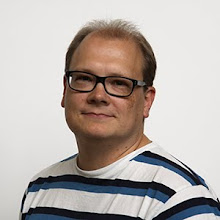The given materials provided me some philosophical and educational background of the open educational resources. These materials recreated me that OER are public good like public libraries and popular education. Actually Ilkka Tuomi has mentioned in his report that one open resource type is a public good from an economic point of view.
The Age of Enlightenment emphasized common sense and knowledge. Also rights for common people was the main idea. This comparison is too straight, but I see that OER and other free softwares are important social movement in this time such as the age of enlightenment once. Here are some justifications. First knowledge and free access to the archives of knowledge is human right and open educational resources are wonderful way to provide it. At the same time OER add peoples' equality. Of course there is still some kind of technical blocks, but I believe that this problem will draw back.
Secondly this kind of movement has social order. On Monday I was in seminar where was considered Quality of Higher Education. There one emeritus professor Lindqvist mentioned that higher education has forgotten one important emphasis in information society. Higher education has given people readiness to use technical devices and softwares but readiness to build civic society and learn lifelong has forgotten or has been minor. So in my opinion OER and free sofware movement have a great potential to become one significant movement which fills the holes of current education, creates new way to learn and promotes the building of civic society.
Thirdly everybody can create and share open educational resources. This is almost same like "idea of science", where research results are public. Everybody can use and utilize these results. The difference is that in science only academic researchers can carry out research, but in OER anybody can create and share the material and also use and utilize it.
In fact open educational resources and other free software movements are more democratic way to learn and share the knowledge than anything else. Anybody can participate in OER movement and express one's opinion, and thus create the diversity of knowledge. Tere Waden, has mentioned that civilisation (culture and education) can be the diversity of knowledge, even it is absolute value. By the way, he has written excellent book with Juha Suoranta: Wikiworld.
Mar 18, 2008
Subscribe to:
Post Comments (Atom)


No comments:
Post a Comment